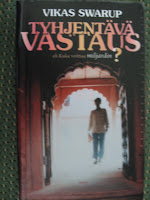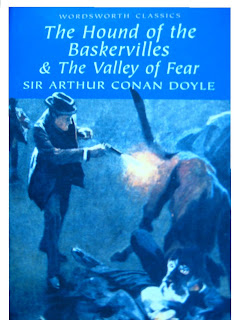Vincent
Tim Burton's poem
Vincent Malloy is seven years old
He’s always polite and does what he’s told
For a boy his age, he’s considerate and nice
But he wants to be just like Vincent Price
He doesn’t mind living with his sister, dog and cats
Though he’d rather share a home with spiders and bats
There he could reflect on the horrors he’s invented
And wander dark hallways, alone and tormented
Vincent is nice when his aunt comes to see him
But imagines dipping her in wax for his wax museum
He likes to experiment on his dog Abercrombie
In the hopes of creating a horrible zombie
So he and his horrible zombie dog
Could go searching for victims in the London fog
His thoughts, though, aren’t only of ghoulish crimes
He likes to paint and read to pass some of the times
While other kids read books like Go, Jane, Go!
Vincent’s favourite author is Edgar Allen Poe
One night, while reading a gruesome tale
He read a passage that made him turn pale
Such horrible news he could not survive
For his beautiful wife had been buried alive!
He dug out her grave to make sure she was dead
Unaware that her grave was his mother’s flower bed
His mother sent Vincent off to his room
He knew he’d been banished to the tower of doom
Where he was sentenced to spend the rest of his life
Alone with the portrait of his beautiful wife
While alone and insane encased in his tomb
Vincent’s mother burst suddenly into the room
She said: “If you want to, you can go out and play
It’s sunny outside, and a beautiful day”
Vincent tried to talk, but he just couldn’t speak
The years of isolation had made him quite weak
So he took out some paper and scrawled with a pen:
“I am possessed by this house, and can never leave it again”
His mother said: “You’re not possessed, and you’re not almost dead
These games that you play are all in your head
You’re not Vincent Price, you’re Vincent Malloy
You’re not tormented or insane, you’re just a young boy
You’re seven years old and you are my son
I want you to get outside and have some real fun.
”Her anger now spent, she walked out through the hall
And while Vincent backed slowly against the wall
The room started to swell, to shiver and creak
His horrid insanity had reached its peak
He saw Abercrombie, his zombie slave
And heard his wife call from beyond the grave
She spoke from her coffin and made ghoulish demands
While, through cracking walls, reached skeleton hands
Every horror in his life that had crept through his dreams
Swept his mad laughter to terrified screams!
To escape the madness, he reached for the door
But fell limp and lifeless down on the floor
His voice was soft and very slow
As he quoted The Raven from Edgar Allen Poe:
“and my soul from out that shadow
that lies floating on the floor
shall be lifted?
Nevermore…”



















